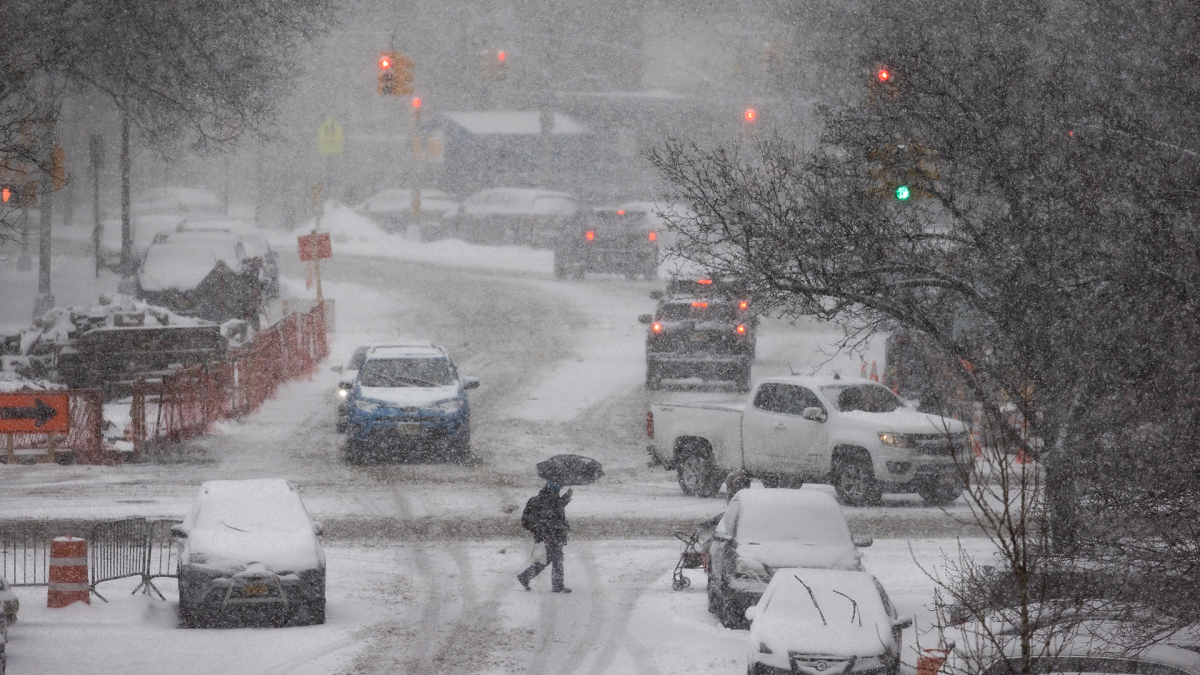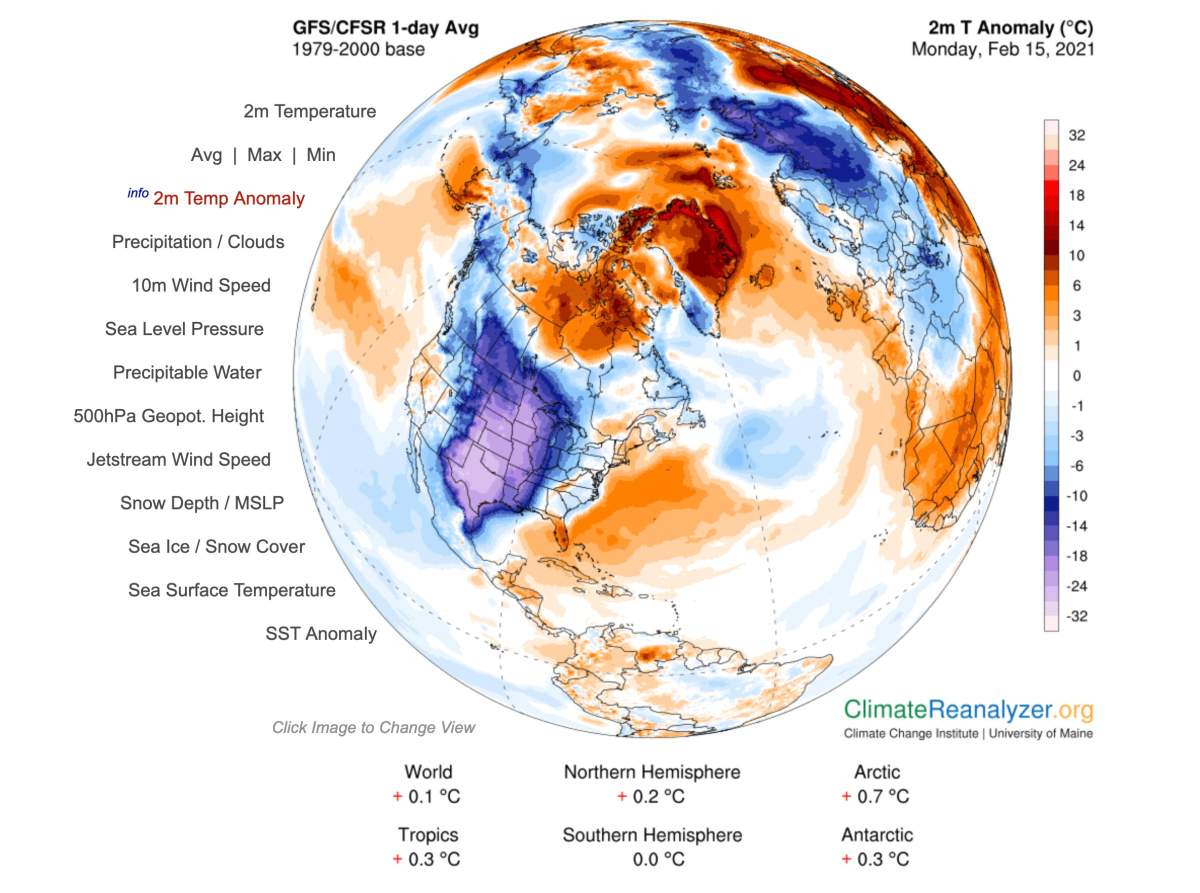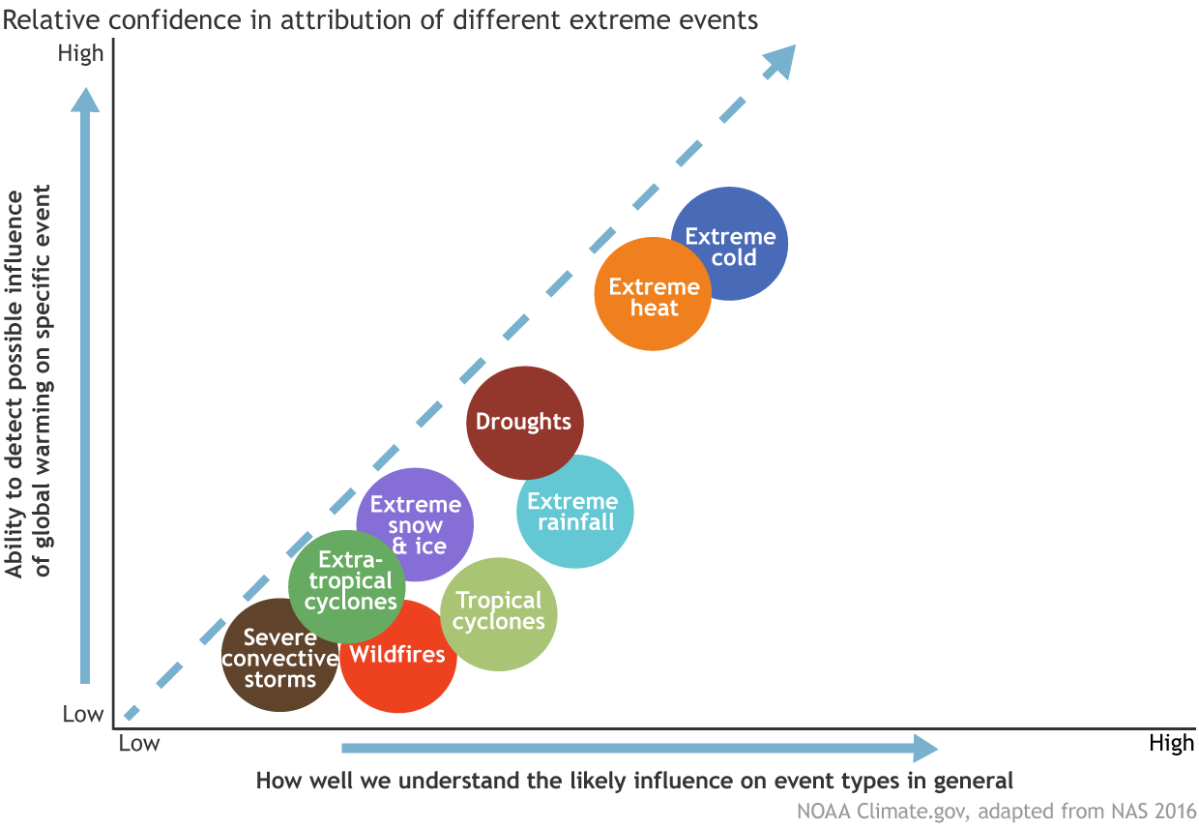The current arctic outbreak across North America is pretty exceptional.

Temperatures in Texas have been 20 C below average, the power has been out for days and snow fell as far south as Mexico.
So, are these arctic outbreaks becoming more frequent or more extreme?
“Some studies show them happening a bit more frequently but one of the problems is, because we only get a couple of them a year, it’s really hard statistically to say we great certainty that if we go from two a year to three a year, that’s actually a meaningful difference,” explains Faron Anslow, Climatologist at Pacific Climate Impacts Consortium.
“They have definitely been more noticeable since the early twenty-teens. So I think scientists like myself are on alert.”
“The bigger thing that’s happening is, there is this greater contrast in temperature that we’re seeing,” he added.
Texas, for example, experienced much warmer than normal conditions in early February and then all of a sudden the temperature plunged to 20 C below normal.

Get breaking National news
Meanwhile, as this arctic outbreak was occurring over North America, there were parts of the Arctic and northern latitudes that were much warmer than normal.
“These periods of higher highs and lower lows are expected to ramp up in the coming decades,” Anslow said.
But it’s not just temperature extremes climatologists are concerned about. Huge fluctuations in precipitation are also occurring, producing periods of drought, forest fires and flooding.
The frequency and severity of these extreme weather events is prompting research all over the world. Studies are looking into their long-term impact and their connection to climate change.
Connecting an extreme weather event to climate change is a new term called ‘attribution.’
According to the U.S. National Oceanic and Atmospheric Administration (NOAA), extreme event attribution isn’t able to explain whether climate change “caused” a specific event.
“It’s not a yes or no question. Instead, it’s always a question of whether global warming added to the existing mix of ingredients that already make extreme weather happen,” the organization explains.
“Global warming may be a cause for an event, but not the cause—at least not yet.”
However, mounting evidence and a better understanding of the connection between climate and extreme weather is leading to an increase in the confidence level of researchers.
“I think that’s something that often gets over looked with climate change is not just that it is getting steadily warmer but you’re seeing more variability with the climate,” Anslow said..











Comments